-
So grateful for Fr. Kenneth Tanner’s way of articulating a key implication of the Gospel here. This has helped clarify my thinking, soften my heart, and strengthen my faith.
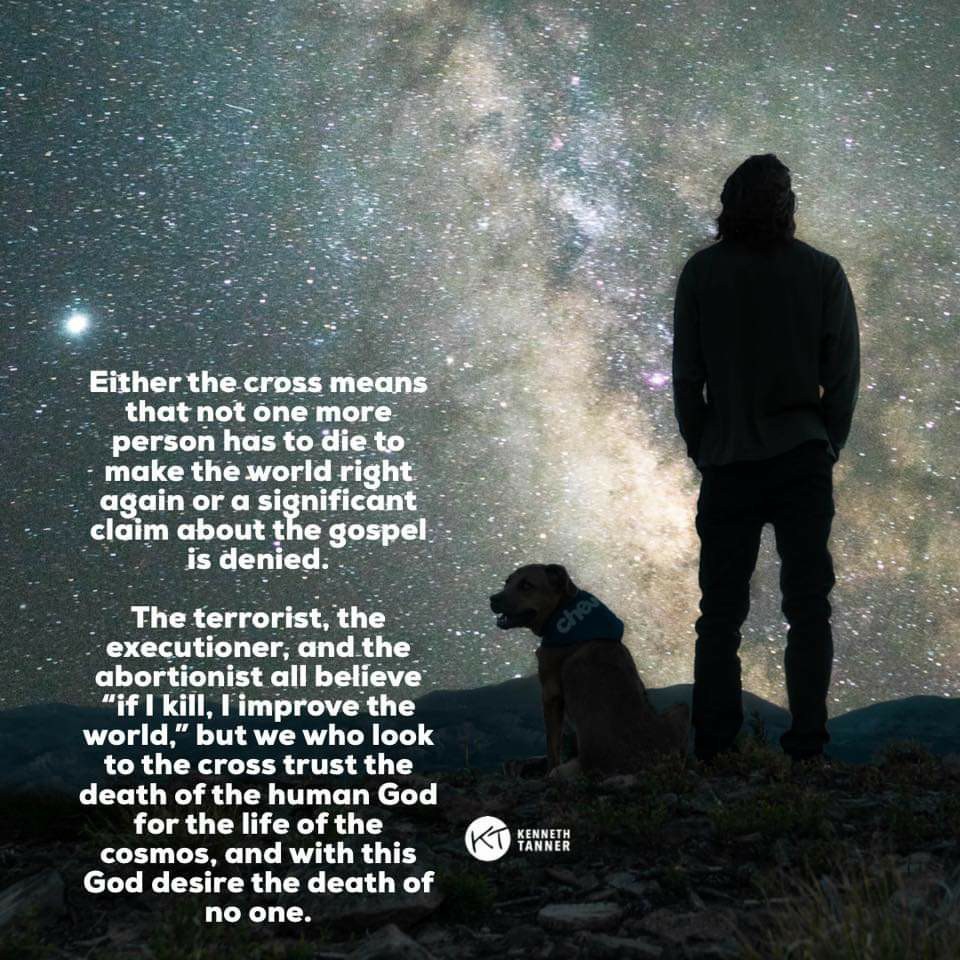
-
Faithful companions
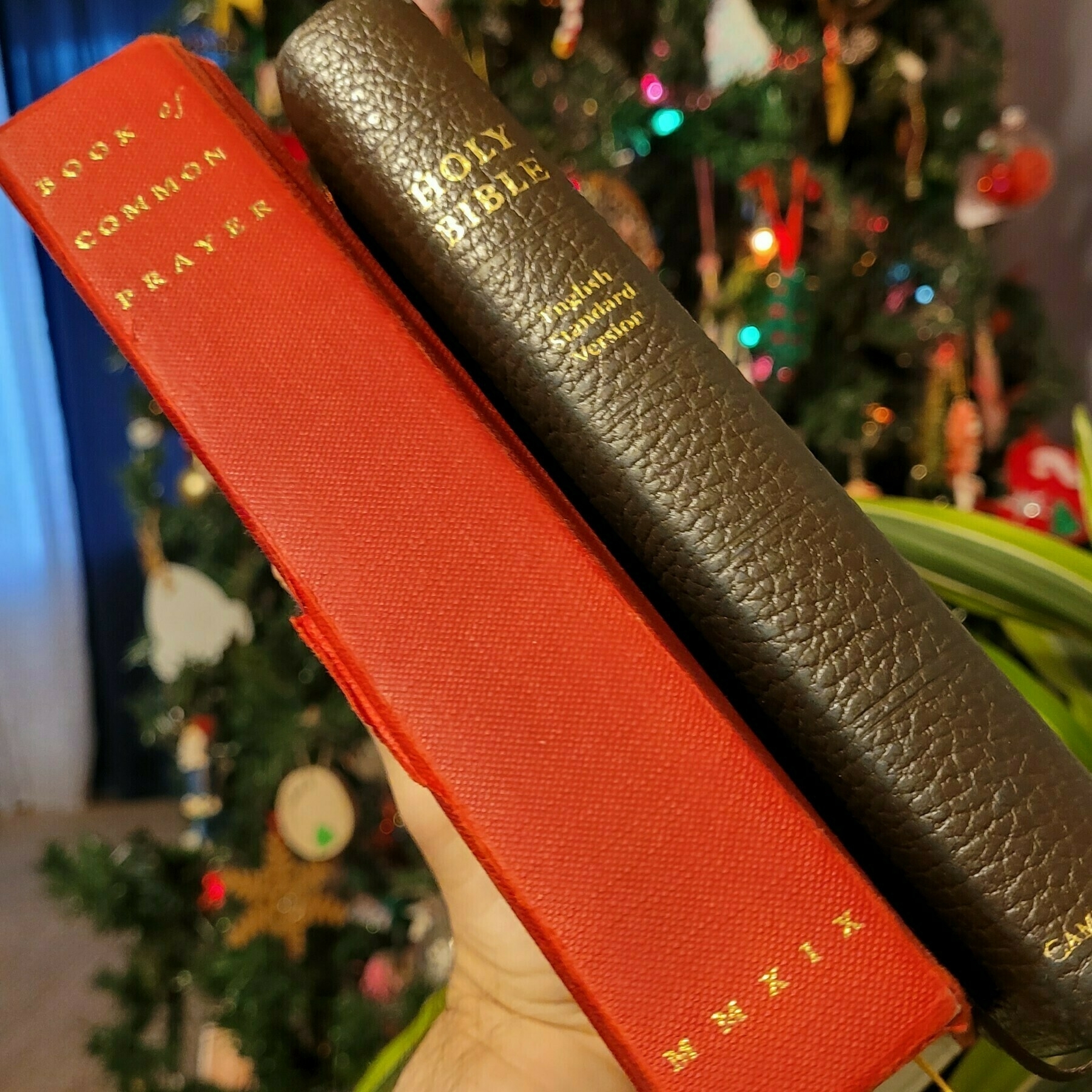
-
The reading chair

-
108 COVID-19 deaths reported in AZ today. I believe this is a record high, the previous being 103 on July 17.
Lord, have mercy. Christ, have mercy. Lord, have mercy.
Almighty God, Father of mercies and giver of comfort: Deal graciously, we pray, with all who mourn; that, casting all their care on you, they may know the consolation of your love; through Jesus Christ our Lord. Amen.
Data source: www.azdhs.gov/preparedn…
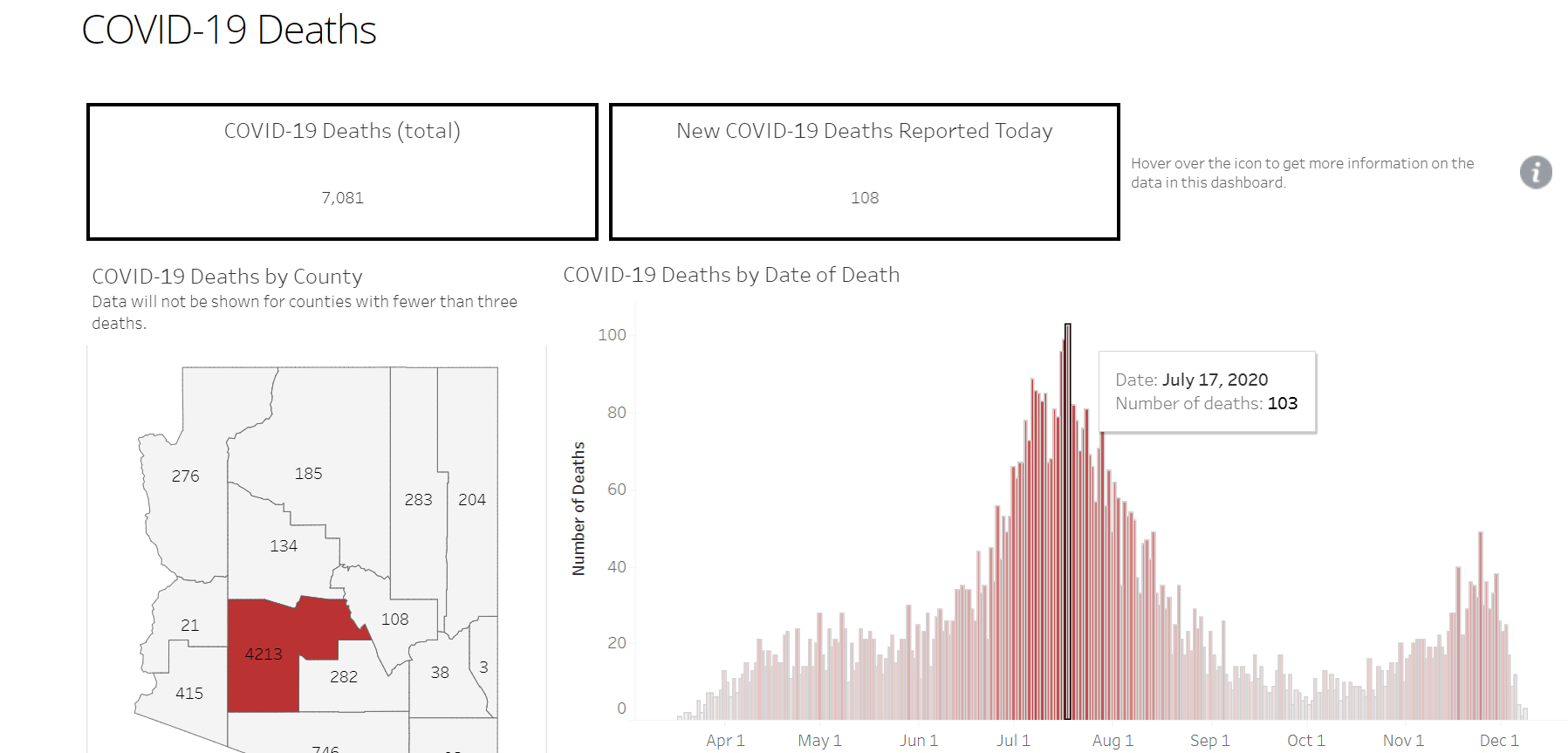
-
With Pastor Matt, I affirm I’m not an economist. I’m a priest. That said, it is part of my vocation to bring the witness of Scripture to bear in regards to what a healthy society looks like and the place of material wealth in that society.
So, I have been doing my best to carefully consider the biblical witness in relationship to a lot of emotionally-charged rhetoric around so-called “socialistic” and “Marxist” public policies–things like universal healthcare, more funding for public education at all levels, more taxes on the rich, and so on.
I have been thinking about these things because they have been presented to me often as de-facto morally reprehensible because of an alleged connection to the economic/social philosophies listed above. However I’ve not seen a similar skepticism of the American version of “Capitalism” and its associated policies. So often, this has been presented as the “obviously Christian” option–mostly because it emphasizes a kind of non-coerciveness, I think, in the minimalist approach to regulation. There’s certainly something to that.
Nevertheless, the post below is a great reminder that no economic/social/governing philosophy is wholly biblical, and careful discernment along with a counter-cultural, faithful witness is needed no matter what system we find ourselves in.
Matt Tebbe, writing at Facebook:
Some thoughts on ‘Marxism/Socialism’, Capitalism, and USA Christianity:
- Marxism isn’t an enemy to Christianity - any more than Capitalism is an enemy to Christianity- which is to say
- Both economic systems have a logic and telos contrary to parts of our Chrisitan story and yet
- I know Socialist Christians. And Capitalist ones.
- All that to say: here’s some things that aren’t socialist but seem like they are to USA Christians:
- Collectivism: Every single culture represented in the Bible was collectivistic; we misread and misapply to our own peril when we individualize Scriptures. Biblical collectivistic assumptions aren’t Marxist, they’re Christian. Christians are told to live with a collectivist ethic in Scripture.
- Critiques of meritocracy: It strikes us as unfair and criminal that people would get what they don’t deserve and yet the politic and economy of the Kingdom of God is scandalously un-meritocratic. To critique and dismantle meritocracy isn’t Marxist, it’s Christian.
- Taking corporate responsibility for history/societal ills: The atonement loses all meaning, the stories of judgment and deliverance make no sense, Paul’s logic of jew/gentile unravels unless one holds to the notion of corporate responsibility. To be complicit and culpable in systems/structures of evil and have a responsibility to reckon with that isn’t Marxist. It’s Christian.
- Suggest that wealth redistribution to the poor is morally superior to wealth redistribution to the rich: USA has billions of dollars in govt handouts to the wealthy, corporations, and rural middle class. Wealth redistribution is a central part of our economy. To advocate for wealth redistribution to the poor isn’t Marxist, it’s commanded over and over in Scripture (OT and NT, both individuals and governments). Wealth redistribution isn’t Marxist, it’s Christian. Wealth redistribution to the wealthy is Capitalist, not Christian.
- All these things seem Socialist (or Marxist) to USA Christians because we are good disciples of Capitalism.
- The reason Socialism seems like such a threat to us and elicits such fear in us is not because it’s incompatible with Christianity; it’s because it threatens our allegiance to Capitalism.
- I am no expert in economic theory; But I see the above dynamics playing out in articles, conversations, and books I’m reading and this is how I’m beginning to work it all out.
-
Dennae Pierre, writing at Facebook:
“A lot of pastors chose trying to defend the chruch from some kind of “false social justice teaching” (that isn’t even being embraced by Christians in their church) at cost of learning how to reconcile and be in unity with Black Christians. Had they chosen the later, they could have become the kind of disciples who could rightly divide the word of truth AND strengthen their witness to the gospel. But because they chose the former they’ve only stepped away from tables and caused harm to the very people their church has been segregated from for generations.”
I appreciate this so much. Is there a kind of teaching out there in some churches that elevates social programs and human problem solving over deeper spiritual truths and the need for ultimate redemption by no one but God in Christ? Yes, of course.
Nevertheless the defensive and accusatory posture in regards to any mention of justice (including “racial justice”), as if this is not a core theme throughout the Scriptures, that I have personally encountered by many “evangelicals” (that purportedly take a high view of the Bible), has been baffling and heartbreaking. A “gospel” that neglects or denies real implications for justice–first in the church and second in the wider society–as a necessary outworking of the Christ’s redemptive work is less than biblical.
“He has cast down the mighty from their thrones, * and has lifted up the lowly. He has filled the hungry with good things, * and the rich he has sent away empty.”
–the Magnificat (Mary’s song)
-
I am grateful for the teaching of the Church, so clearly articulated at the time of the Reformation, that we have a true encounter with God in corporate worship…and we are confident in this not because we get the ritual or the music or the sermon just right, but because God has promised to meet us as an act of grace and mercy and faithfulness.
-
It is an honor and privilege and joy to witness in my own feeble way to the only True King, my Lord Jesus.
I am in perpetual awe of how unlike any other ruler he is, how he gives of himself instead of taking from his subjects, how he dispenses mercy to the self-condemned without limit, how he realizes justice for the oppressed, how he heals the sick and binds up the broken–in a word, how he loves!
Praise to you, Lord Christ!
-
Interpreting the Thirty- Nine Articles
Religion with Room to Grow
Owen Chadwick in his essay “The Mind of the Oxford Movement” notes that church historian Thomas Fuller (17th century, mind you, not far removed from the Articles) said “that the Thirty-Nine Articles were like children’s clothes, made of a larger size so that the children might grow up into them. Whether the original authors of the Articles were looking for that breadth and liberty…is doubtful. [Yet] the statement [by Fuller] effectively represents the way in which Anglican moderation was seen to have room for persons attached, in mind or affection or devotion, to tradition.”
The historical fact seems to be that the Articles were interpreted in different ways from the very beginning! There was the immediate sense of the author’s intent, then there were others who wished a more lenient interpretation (which was certainly a legitimate possibility from the text itself). The Latitudinarians basically said, “if there’s no clear Scriptural prohibition, everything is on the table as long as it doesn’t get into that realm.” This would eventually develop into the broad church tradition, and in its more extreme form became the way of the Evangelical movement: The Scriptures, along with Reason and the Holy Spirit, were enough in themselves to arrive at the fullness of truth, without necessarily consulting the Fathers, etc.
Chadwick says, “The Latitudinarian dominance in English thought….so reinterpreted the Thirty-Nine Articles as to make them no longer the doctrinal hedge or guide which once, perhaps (but only perhaps), they successfully formed.”
The Oxford movement actually didn’t like this at first, because in their mind it chipped away at the teaching authority of the Church. Nevertheless when Newman threw out his interpretation, he is handling the Articles in ways they were already being handled. Another quote from Chadwick: “Whether or not Newman’s method was sound is a question. But the novelty was not in his handling the Articles to extract the maximum breadth from their language. The novelty lay in his handling the Articles in a Catholic direction.”
The Articles of Religion in their Proper Place
To lay a bit of groundwork: First, within the historical development of Anglicanism, we see a hierarchy of teaching authority:
First, The Biblical text itself.
Second, the teachings of the conciliar, undivided church as expressed in the dogmatic proclamations of the great councils.
Then, the teachings of the Fathers (where they speak with one voice).
Then, (four levels up!) the Thirty-Nine Articles and the teachings of the English Reformers themselves (which are meant to reform back to the Bible and Fathers).
Finally, reputable and godly contemporary scholars and theologians.
This hierarchy is key to a faithful way of interpreting the Articles that maintains historical and intellectual integrity.
Hermeneutical principles for the Articles
Now, a few principles on the Articles themselves, once we get there:
- The degree to which those statements are binding have to do with how in-concert they are with higher levels of authority (the Fathers and Scriptures). I refuse any doctrinal or ethical proposition that is in outright contradiction of the catholic consensus if that consensus can be reasonably argued from the Scriptures—as would the authors of the Articles themselves.
The Articles are not meant to expound new doctrines (a brief overview of the writings of the English Reformers will show this) but rather to express in language contemporary to the time the Catholic doctrines in opposition to the abuses and superstitions of the Roman church. They were meant to rein in some stuff that gone way too far. If we take them to be statements that are not highly influenced by their historical context, and fail to take that into account in our application of them to our own, different historical context, I think we are missing something. As we interpret them, we must do so in a way consistent with higher levels of authority.
- It is probable that the original authors did in fact mean to prohibit certain practices and doctrines that are arguably consistent with the Bible and witness of the Early Church, and thus catholic. Example: reservation of the Sacrament. However we are not bound so much by exactly how the orginal authors intended to apply the true catholic doctrines in the daily discipline of the church (although it’s important to keep in the conversation regarding interpretation and use of the Articles).
We agree the authors were fallible, but their desire to reform the church to consistency with the Bible and Fathers was sound. So, we are justified in being primarily concerned with the usefulness of the statements in the Articles in themselves as expressing pre-existing catholic doctrine reasonably argued from Scripture and Tradition, today. So the question is, are they still useful?
- Our Communion’s collective witness is that they are still useful, because they put in no uncertain terms the Bible in its rightful place of primacy and address issues that still plague the church today (for instance, Pelagianism and anti-Trinitarian heresy). Even interpreting them in the widest possible sense, the essential, catholic doctrines (including justification by faith) are preserved. Furthermore, keeping them as a standard helps us to remember our origins and the precious doctrinal, liturgical, and cultural heritiage we receive as heirs of the English Reformation.
Conclusion
Given the actual broadness of the wording, the uneven, yet enduring historical reception of the Articles in the Communion, and the principles of a hierarchy of authority, I think it is possible and even permissible (I’ll go further: even desirable!) to interpret the Articles in a way that permits certain practices and doctrines that the authors would have rejected at the time.
We do this to be as faithful as we can to higher levels of authority, while avoiding the messy and unneeded process of revising the Articles.
For example, we can (and to be intellectually honest, we must) acknoweldge that the Articles do probably intend to prohibit the reservation of the Sacrament as it was being practiced at the time. At the same time, we can reasonably argue that the current practice in Anglican churches of reservation for the sick does not violate the catholic doctrine set forth in the articles, (may in fact exemplify their spirit) and thus is in fact consonant with their deeper principles. Moreover, the text itself does not outright prohibit the practice, so we can accept the relevant text as-is, without revision. This is simply following the spirit of the “law” in the Articles with wisdom, rather than the letter.
Not only can we intepret the Articles this way, we should interpret them this way! We should do it openly, too, and show our work. This is because regardless of precise authorial intent, we want to interpret in harmony with the guiding principle of the Reformers: faithfulness to the higher levels of authority for the purposes of illuminating true, catholic (universal) doctrine and practice, while refuting superstition and abuse.
This is gives us some of the “room” of the Latitudinarians and, say, Newman-style interpretation without giving ourselves over to historical revisionism. We are able then to maintain faithfulness to catholic doctrine/practice and intellectual honesty.
-
Love is prior to unity. Grace and mercy are prior to agreement.
-
And, with gratitude for all you have done and who you are.
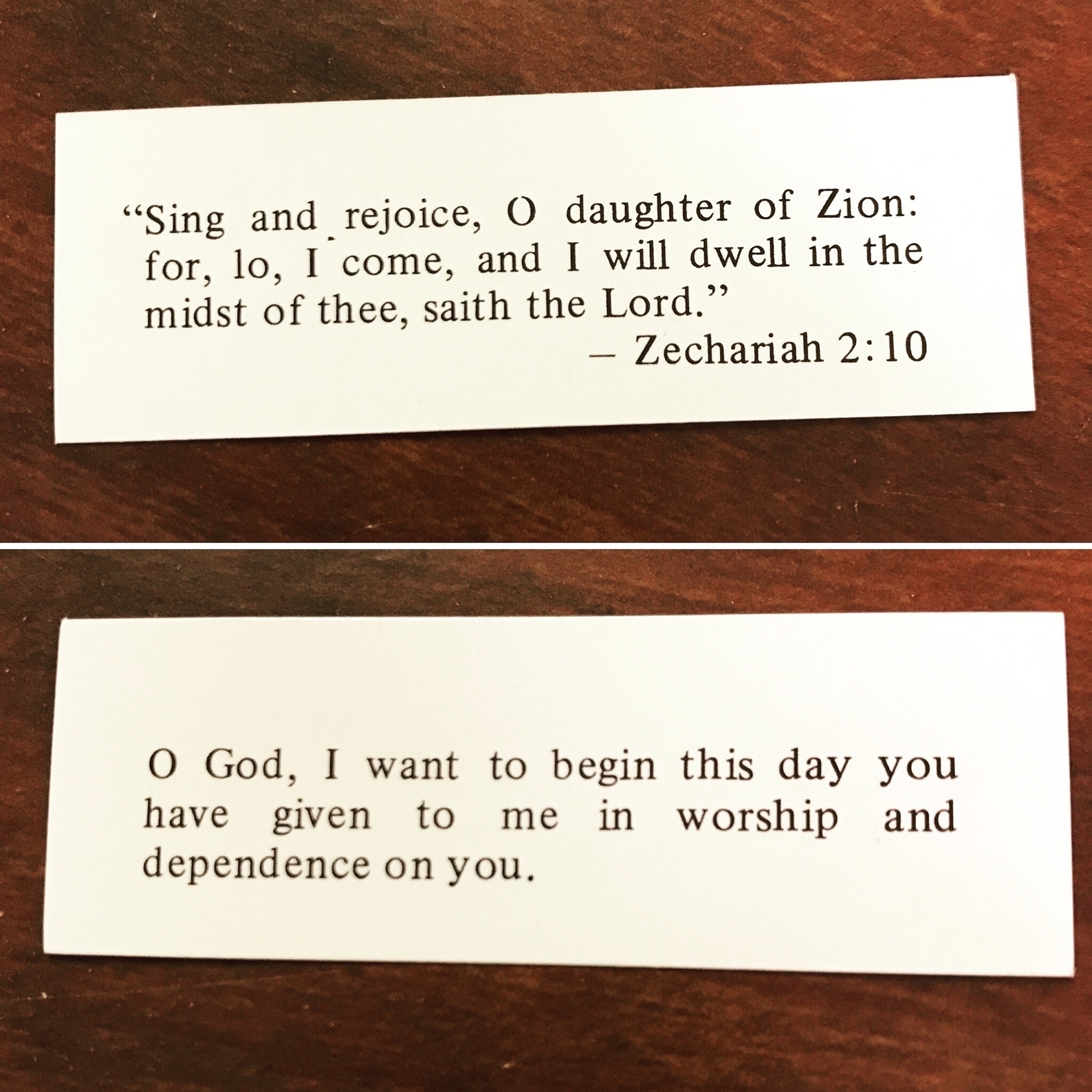
-
“You will be dead, so long as you refuse to die.” - George McDonald
-
Last night’s shameful “debate” confirms the inability of earthly nations and leaders to offer lasting hope, a compelling moral/ethical vision, or a way to understand the world in themselves.
Look to Jesus instead.
-
It’s not “being right” that makes us right with God, but the righteousness of Christ.
-
We are in a season of confusion, disinformation, and distraction.
God’s Word incarnate, Jesus Christ, as revealed in God’s Word written, the Holy Scriptures, will be a lamp to light your next step.
There’s no reason to be afraid.
You won’t have all the answers all the time, but you can follow the one who is Wisdom in the flesh.
Read your Bible with an open heart. Receive the Sacraments with gratitude. Pray with a fervent faith. And love each other with the love of the Lord.
Keep your eye on the prize.
-
The distinguishing mark of the Church
I wholeheartedly believe the church is meant to credibly model and offer a different way of life than what the rest of the world experiences.
In particular, the distinguishing mark of the church is radical love for one another, for the sake of Christ.
As long as Sundays remain mostly segregated…
As long as women are discouraged from exercising their spiritual gifts and demeaned when they do…
As long as children sense they are a burden in the worship service…
As long as singles don’t find a sense of real, every-day family in the household of faith…
As long as keeping the peace is more important than peacemaking in our communities…
As long as certain topics are “off limits” for fear of offense in our gatherings…
As long as we demand and are satisfied with worldly ways of leading congregations…
As long as we act as if our obligations to one another are met via an occasional check in the offering and pleasantries in the parking lot…
As long as convenience and preference are the determining factors for level of involvement and degree of commitment…
As long as we allow American partisan differences to sow demonic division instead of inspire biblical discussion…
…we are missing our vocation of radical love for one another!
-
Keeping the peace or peacemaking?
I think there is a difference between “keeping the peace” and peacemaking.
In the first, tension is avoided for fear of conflict/disagreement destroying relationships. In the second, a certain kind of tension is actively sought out so that working through it together, relationships are strengthened.
In the first, a surface-level appearance of same-ness (not the same thing as unity!) must be maintained. In the second, a true and deep communion/knowing is desired even if that means acknowledging deeply embedded differences openly.
In the first, the status-quo is maintained, even when ultimately harmful or unhealthy. In the second, careful discernment leads to steady movements closer to the heart of Jesus.
In the first, discomfort is avoided. In the second, a kind of suffering is embraced.
The church in America continues to wrestle with things like how to realize racial reconciliation in our unique context, how to love one another across the political party divides, and how to present a distinctive and credible witness to the truth of the Gospel.
In order to move forward in ways that are faithful to Jesus and demonstrate true love between us, I believe we must renew our commitment to true peacemaking over and against keeping the peace.
-
Current slate of physical books in play
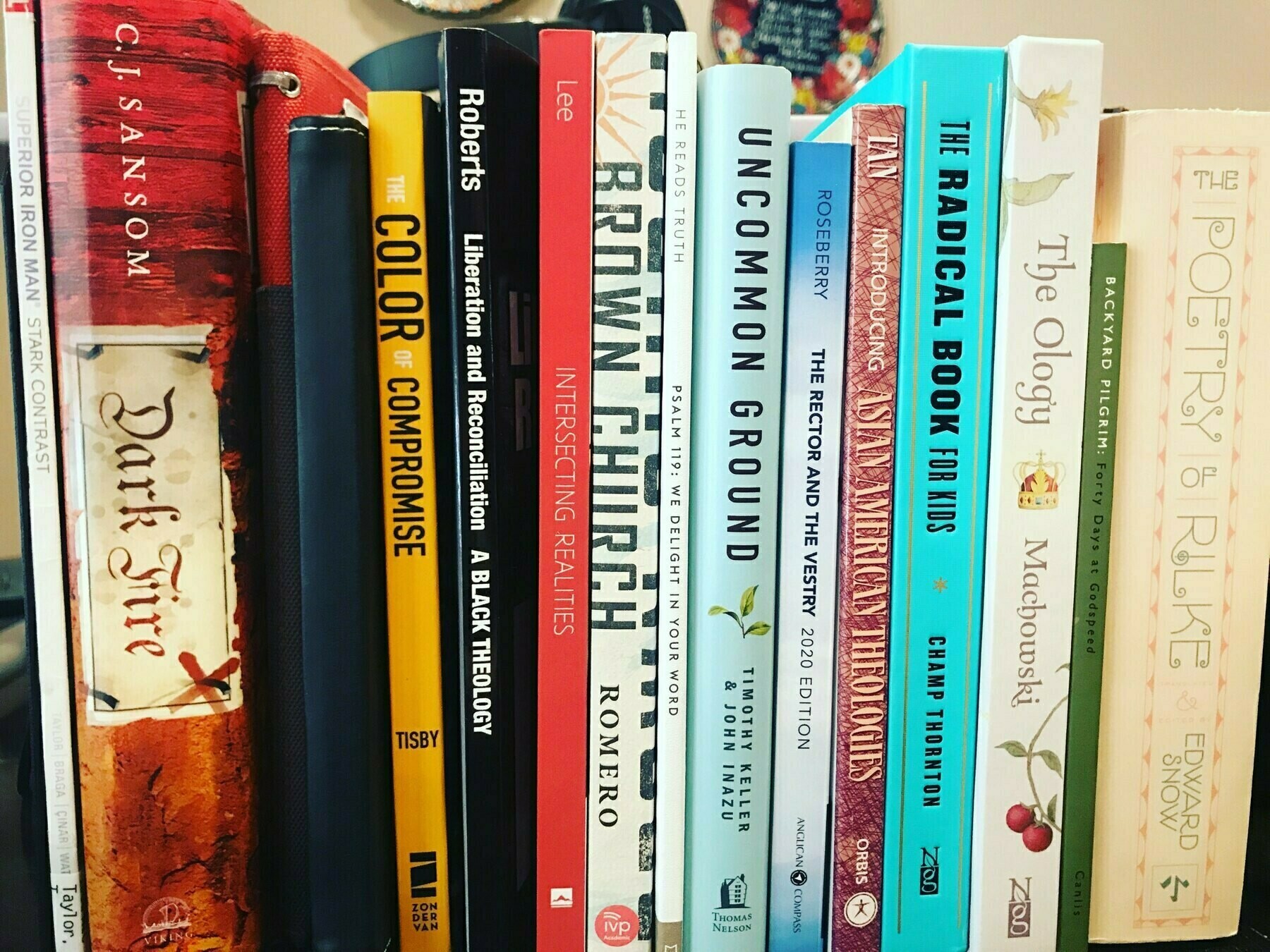
-
A dear friend, brother in Christ, and parishioner of mine passed away last week. This is how I can express my feelings.
-
These are changing times, friends. Hard times, but not without some hope.
-
Soundcloud is so aggressive in suggesting their pro option that I just moved everything over to BandLab, where I’ve been spending a ton of time lately anyways. Everything Soundcloud does for me, BandLab does about 10x better…and for free at the moment.
-
15 years married to Amber today. She’s the best friend anyone could ask for, an inspiring parent, and an absolutely dedicated wife. Faithfully follows Jesus day in and day out. Works hard for the kingdom and her family and her friends. Teaches me about what’s truly important in life daily. Smartest person I know, too. I know I don’t deserve her. So grateful to be facing the future together.

-
02 What is the Gospel? The Gospel is the good news that God loves the world and offers salvation from sin through his Son, Jesus Christ. (Psalm 103:1–13; Isaiah 53:4–5; John 3:16–17; 1 Corinthians 15:1–5)
From To Be A Christian - An Anglican Catechism
The Gospel (good news) of Jesus Christ is absolutely at the core of the Christian message–and the Christian life.
Over time I’ve come realize that the Gospel isn’t just the first truth in a long line of other things to learn about God and life, that eventually I move beyond.
Instead, for me it is more like a key that unlocks every other theological truth, whether they are presented in succession or not, so that it is always with me.
The Gospel is the gravitational center around which the fullness of what we can know and experience about God, humanity, and all of creation orbits.
-
A few (though not all) of the books I intend to read as I participate in Nashota House’s “The Bible & Theology in Color” with Fr. Esau McCaulley One more in the mail and 2 more in ebook format. I must admit I’m woefully under read on this and it’s tough to know where to begin…I’m very grateful just for the suggested reading list!
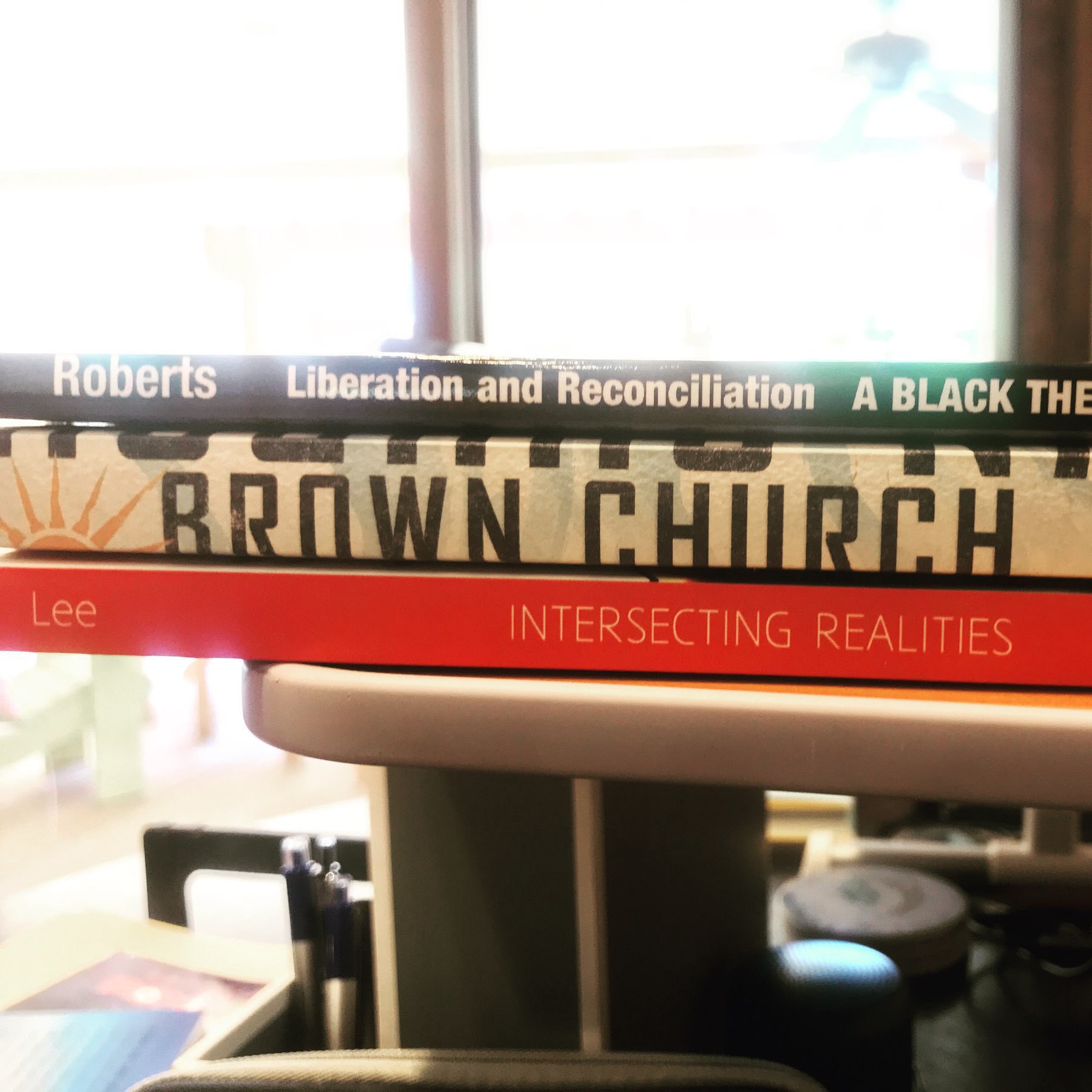
-
Currently reading: The Color of Compromise: The Truth about the American Church’s Complicity in Racism by Jemar Tisby 📚